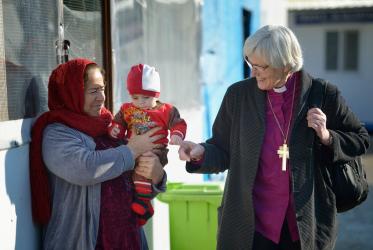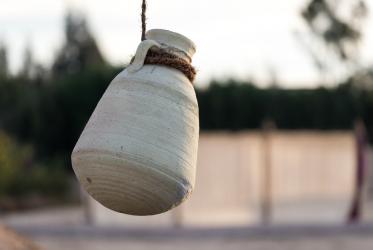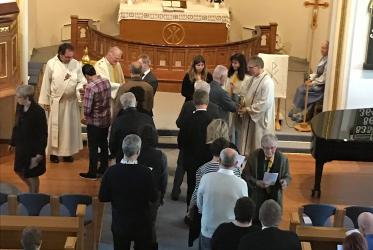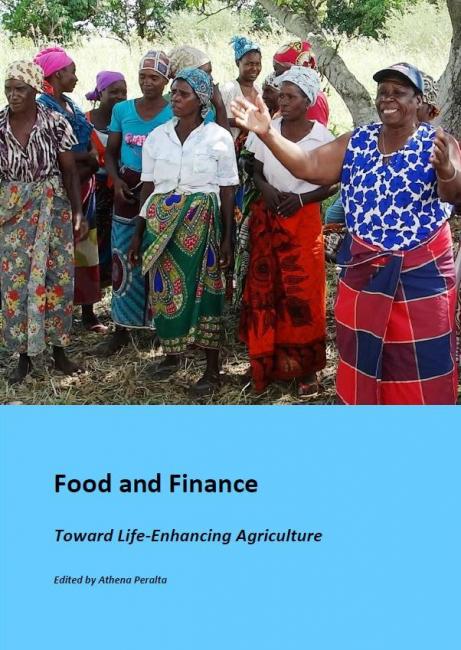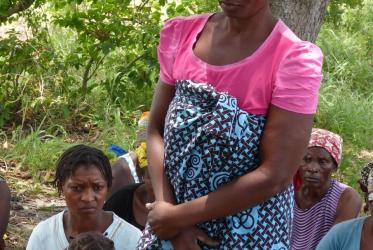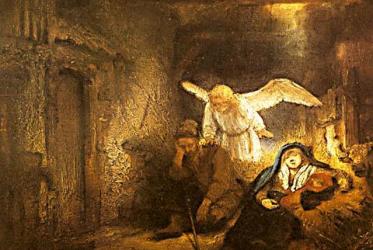Displaying 1241 - 1260 of 1801
26 January 2017
“Justice is a gift from God,” affirms WCC general secretary
17 January 2017
Food and land justice focus of Mozambique workshop
19 December 2016
‘No Christmas bells in Mosul’ for a third year, says Assyrian priest
14 December 2016
Standing Rock decision ”Gospel news” for indigenous communities
08 December 2016
Second Bible study on stateless persons available for Advent use
08 December 2016
Ecumenical Water Network releases statement on water justice
02 December 2016
Plans for 2017 decided by WCC Executive Committee
01 December 2016
Lead by example: get HIV tested
30 November 2016
Water justice focus of consultation in Nigeria
29 November 2016
